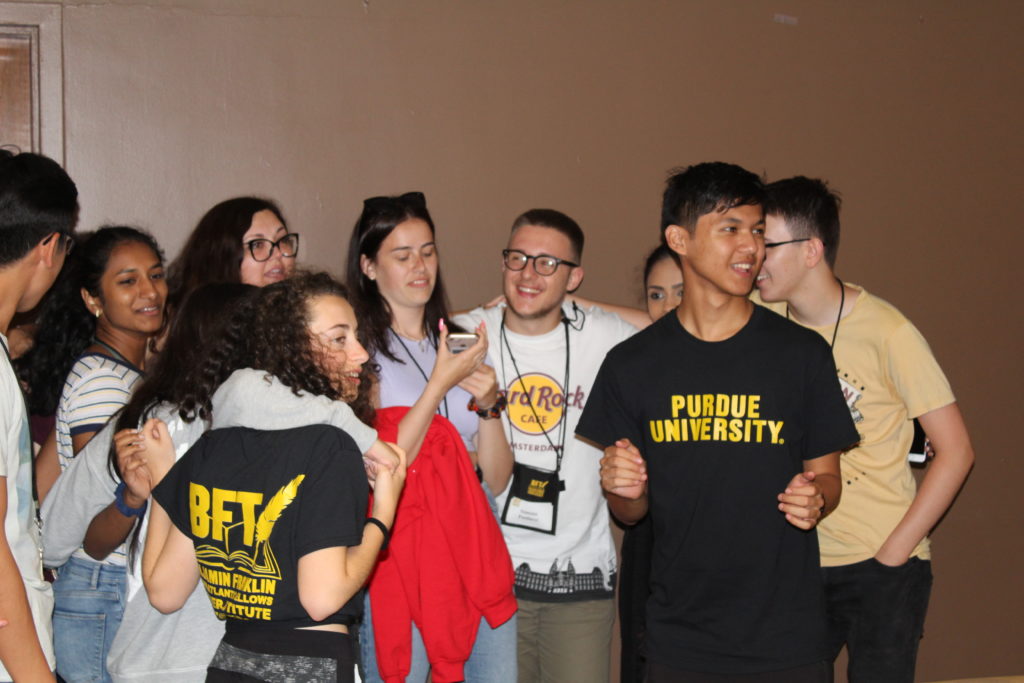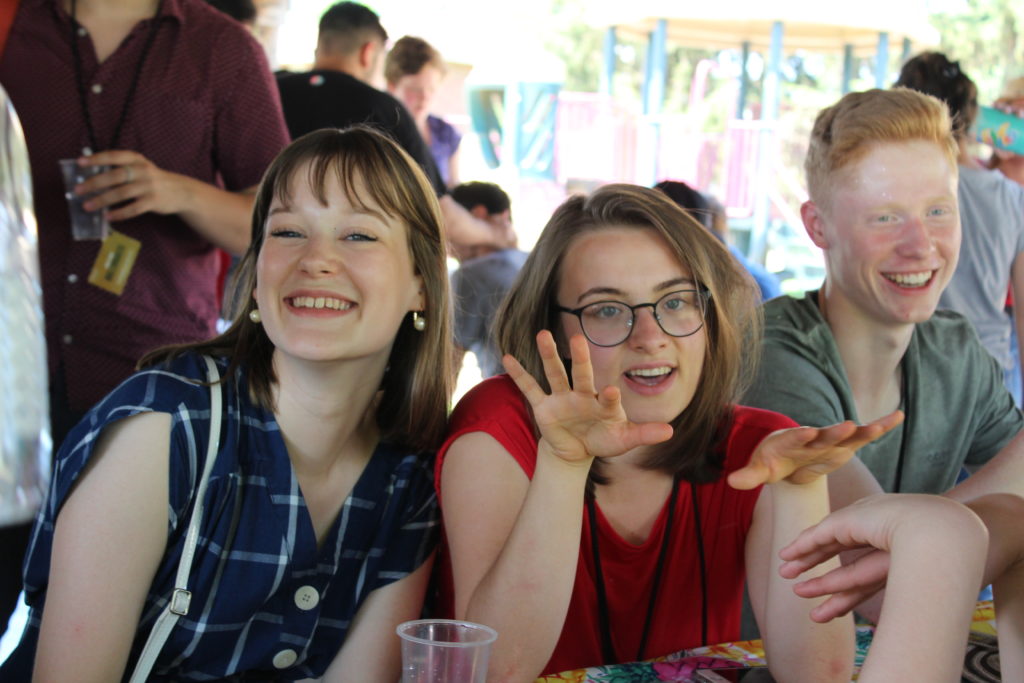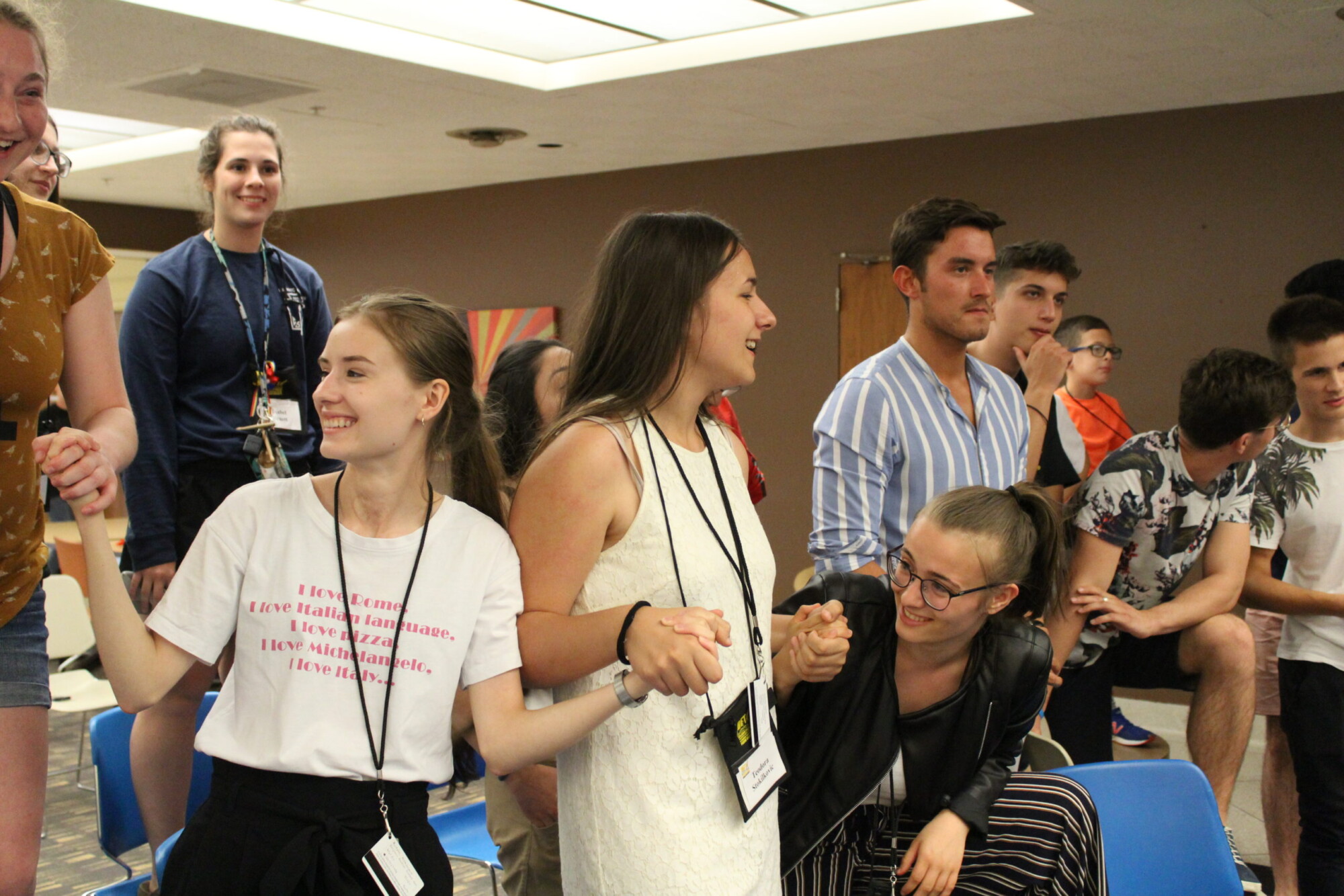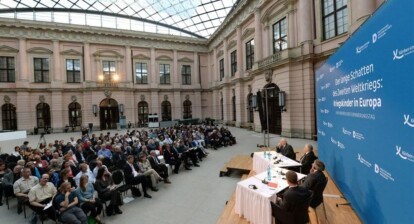How do we communicate when we’re abroad? Which language(s) do we chose to speak during international workshops, conferences, trainings or when volunteering? Our author Hanna from Belarus reflects on why she prefers to use English even when Russian might be a simpler choice at a first glance.
In our globalized world, people from different countries meet in all sections of life, be it culture, education or work. When people come together in international settings at workshops, conferences, trainings or volunteering, communicating across different languages can be tricky. If everyone only spoke in their native language, we would not be able to understand each other. So, we find a common language to talk to each other: in many cases it is English, the unquestionable language of international communication, which today has a remarkable power to connect people of different nations and cultures.
When I became part of an international exchange program, which gathered young people from 46 countries in one place for a month, I noticed that we almost automatically switched to English even though with some people I had another language in common: Russian. I started wondering: Do we always switch to English only to make it easier to talk to each other, transmit the necessary information, and express our thoughts and feelings? Do we turn to English just to make a piece of information we want to exchange more clearly to a person of a different linguistic background? Or are there other intentions or even hidden messages we want to convey to our interlocutors, while using English or our national languages in a multicultural environment? All these questions started flashing in my mind and I began observing and reflecting on this question of language choice. Here’s what came of it:
My personal rule: English first

Photo: Personal
It was the end of the first week of our program when a participant from Moldova exclaimed, “So you also know Russian! I have heard you speaking only English. Let’s talk in Russian?” In fact, what she heard was one of the few conversations in my native language I had during the program, though I knew that there were a number of participants who were fluent in Russian. My Moldovan friend was even more surprised to find out that Russian is not just a language I know, but it is my mother tongue.
My parents looked surprised as well, if not shocked, when I told them that I have developed a habit of using English at international events when communicating with people that I know speak fluent Russian. Why would you speak to someone in a foreign language, when you share the native language? That sounded as odd to them as it did to me – until I discovered that there are people who feel uncomfortable and unpleasant about speaking Russian, despite being fluent in it.
“I am sorry, I hate Russian”
In the Eastern Partnership and Baltic countries there is still a considerable number of Russian-speaking people, though this number decreases with every new generation. When meeting and getting to know different citizens from those countries, some of them said things like “I would prefer not to talk in this language” or “I am sorry, I hate Russian”, which made me wonder why somebody would have such an aversion towards a language. I tend to believe that all those people don’t really have an issue with Russian from a linguistic or cultural point of view. It rather seems to go beyond and turn to politics and experiences from the past. For some people, a language becomes an embodiment of a particular country, its policy and government and their relationship to their country’s or their own personal history, be it positive or even traumatic
This is why I came up with my simple “English-first” rule for myself, which I use abroad: talking to a person in the English language, even if he/she speaks Russian fluently, until I am sure that my interlocutor is okay with having a conversation in Russian. At such moments, English is not just a means of communication for me; it is a tool that helps me to avoid setting the wrong tone in a conversation just by starting to speak my language, however ridiculous this may sound.
United in Languages

Photo: Personal
Nevertheless, you can also find languages as a great source of unity in an intercultural environment. Here again I take my American experience as an example. The person I talked to the most during the program was Kate from Ukraine. Our countries as neighbors share not just borders and various periods in history, but also some similar cultural traditions and traits such as our national languages. In fact, Ukrainian, Belarusian and Russian shape and belong to the same group of East Slavic languages, which makes them more or less alike. However, it is interesting that people fluent in Russian may find it difficult to understand Ukrainian or Belarusian.
So Kate and I came to a joking agreement: if we are to say something that only two of us should understand, we would switch to our national languages which we somehow understand while barely being understood by others. Like all Belarusians and a lot of Ukrainians, Kate speaks Russian fluently and we switched to it from time to time as well. It’s pretty helpful when you know a word in your native language that expresses an idea or brings the right connotation in a far better way than a whole clause in a foreign one, let alone some proverbs and sayings that can hardly be translated into other languages.
“We Always Stick Together”
Participants from the former Yugoslav countries used their native languages more often: there was barely any chance to hear the English language when they were communicating within their regional group. And once talking to them, I mentioned how bonded they seemed to be within their group always speaking their language(s), to which one of them said: ”We can complain about each other endlessly back in our home countries, but when we go abroad, we always stick together. And the language is one of the ways for us to feel this bond”.

Finally, I managed to witness another manifestation of unity people can find in languages: During the official closing ceremony of our program one of the participants was shouting to the rest: “German-speaking countries, let’s make a photo together.” This made me think how amazing it is that even if just for one photo, language can bring people together.
So, I realized that this cultural phenomenon is not only about the means of communication. Language is so much more than that. It allows us to find unity, celebrate diversity and, what is more, send a myriad of messages to each other skillfully using one language or switching from one to another, when we are in an intercultural environment.
Check out more blogposts at our History Campus!





